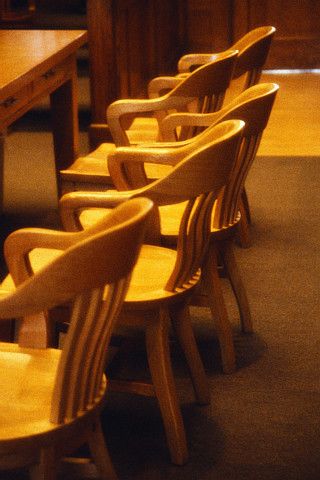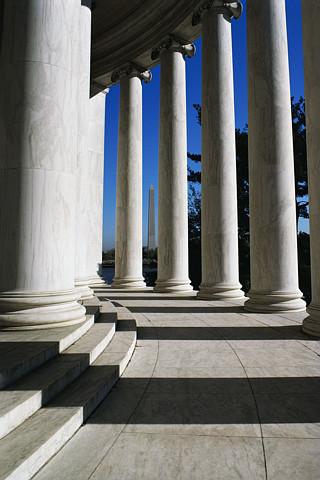NYSDOT Case Summaries: Appeal Decisions





The following is a series of illustrative NIW case summaries to help elucidate the NIW. These cases can help you get a feel for the kinds of people who apply for an NIW, their specific circumstances, and the outcomes of their cases, as well as the way USCIS interprets NIW regulations.
Keep in mind that these cases are all based on the NYSDOT standards that are no longer in place. The NYSDOT decision was superseded by the Dhanasar decision, which is now the current law of the land for NIW cases. While the Dhanasar rules are built on the NYSDOT rules, they differ in important ways. However, it might be helpful to have this analysis of cases that were decided based on NYSDOT guidelines.
First, let’s take a look at the NYSDOT case itself.
NYSDOT Case: In re New York State Dept. of Transportation 22 I&N Dec. 215 (Comm. 1998)
Beneficiary: a civil engineer from India
Core Point: NYSDOT established the Three-Prong Test for NIW petitions
Date of AAO Decision: August 7, 1998
Abstract
This landmark case laid out the Three-Prong Test that applicants must satisfy in order to qualify for a National Interest Waiver (NIW). This test stipultes that the beneficiary must seek to work in an area of substantial intrinsic merit, the beneficiary’s work must have a benefit which will be national in scope, and the beneficiary must serve the national interest to a substantially greater degree than would an available U.S. worker having the same minimum qualifications, in that the national interest would be adversely affected if a labor certification were required for the beneficiary.
Original Case Outline: The petitioner, NYSDOT, filed an NIW petition for the beneficiary, a civil engineer from India who specialized in engineering projects for NYSDOT. The petition included several testimonials about the civil engineer’s excellent engineering skills and how his expertise was in short supply as well as its importance to the U.S. It was stated that while the beneficiary’s employment was limited to a particular geographic area, New York’s bridges and roads connect the state to the national transportation system. Thus, the prospective benefit was national in scope.
Original USCIS Decision: The USCIS officer reviewing the case denied the petition. Although the officer found that the beneficiary qualified for classification as a member of the professions holding an advanced degree, the petitioner had not established that an exemption from the requirement of a job offer would be in the U.S. national interest.
AAO Ruling: The AAO denied the appeal on the grounds that a petitioner cannot establish qualification for an NIW based solely on the importance of the beneficiary’s occupation. Although engineering is a field of substantial intrinsic merit, this fact alone does not suffice to grant an NIW. At issue was whether the beneficiary himself plays a significant role in the preservation and construction of bridges, and not whether proper bridge maintenance is in the national interest. Thus, the benefit of the beneficiary’s skills will provide to the U.S. must considerably outweigh the inherent national interest in protecting U.S. workers through the labor certification process.
Final Outcome: On August 7th 1998, the AAO dismissed the appeal.
Case 1:NIW Petition
Beneficiary: Postdoctoral Research Associate in Nanotechnology Industry
Core Point: The substance rather than the format controls the decision process.
Date of AAO Decision: Nov. 21, 2011 (Texas Service Center)
Abstract
The NIW petition was approved on appeal after AAO reevaluated the initial evidence and determined that it was sufficient to demonstrate that an exemption of labor certification would be in the U.S. national interest for the petitioner, a postdoctoral research associate. The associate must show that he had past achievements with some degree of influence on the field as a whole, which he did in the initial submission. It was determined that the significance and influence of the associate’s work, mainly reflected by 450 independent citations of the petitioner’s four publications, outweighed the generic format of the recommendation letters and the lack of a high rate of publications.
Original Case Outline: The petitioner was a young postdoctoral research associate with a bachelor’s degree in chemistry and biology, and a Ph.D. in chemistry. His research involved novel technical and synthetic advancements in nanoparticle surface chemistry, which was valuable to scientists looking to use nanoparticles in a practical manner within the growing industry. During his time as a student, the petitioner coauthored four published articles in several top-rated, international chemical journals (e.g. Journal of the American Chemical Society, which is “the most cited journal in chemistry”) in addition to having over 400 articles cite his works. An associate professor called his research in nanoscience and nanotechnology “extraordinary” and said that it had been recognized at an international level.
Original USCIS Decision: On December 28, 2009, the petitioner submitted an application for an NIW petition. However, the NIW petition was denied by USCIS on August 20, 2010 on the basis of insufficient evidence that a waiver from the requirement of a job offer would be in the U.S. national interest. The USCIS officer who denied the petition cited the similarity of the letters of recommendations, which consisted of the same language style, and the fact that there were insufficient details about the contributions made by the petitioner within the recommendation letters. In addition, the petitioner had not produced a large volume of works, and his small number of works had been published while he was still a university student. In response, counsel for the petitioner asserted that the intrinsic merit and national scope of the petitioner’s work was firmly established and that the USCIS officer had offered little explanation as to how the evidence inadequately measured up to the factors used to deny the NIW petition.
AAO Ruling: AAO ultimately reversed the USCIS Officer’s denial of the petition on the grounds that the evidence was sufficient to show that a waiver of Labor Certification would be in the national interest of the U.S. Although the petitioner did not produce a large amount of publications, the articles he published had been influential (i.e. there were 450 citations of his work, averaging 112 citations per article) by scientists in the nanotechnology industry. In addition, according to the NYSDOT case, the petitioner must show that he/she has had past achievements with some degree of influence on the respected field as a whole. Given his citation numbers, the petitioner’s research was clearly influential in his field. Furthermore, it is not important that the petitioner was still a student at the time he published such research since it does not affect the content of the publications. On November 21, 2011, AAO ruled that the weaknesses of the arguments (e.g. similar language in the recommendation letters) in the petition did not detract from the stronger factors indicating the influence and significance of the petitioner’s work.
Final Outcome: AAO reversed the USCIS’ decision and approved the petition.
Case 2:NIW Petition
Beneficiary: General manager of a Chinese electric company
Core Point: Legal criteria for Alien of Exceptional Ability should be documented to meet the standard requirements.
Date of AAO Decision: January 11, 2005 (Vermont Service Center)
Abstract
An NIW petition was denied for the president of a Chinese electronics company who filed under the category of Alien of Exceptional Ability because she had failed to show that a labor certification exemption would be in the U.S. national interest. The beneficiary also failed to satisfy the six criteria for Alien of Exceptional Ability and did not demonstrate that she influenced the industry as a whole.
Original Case Outline: The petitioner was president and general manager of an electric appliance company in China who had two years of junior college level education. Since the petitioner did not qualify as an advanced degree professional (i.e. a level of education above the U.S. baccalaureate level), she applied under the Alien of Exceptional Ability category. According to USCIS, exceptional ability is a degree of expertise above that ordinarily encountered in the field in question. It is insufficient to show that the petitioner merely possesses qualifications that every member of the given field has. USCIS outlines six criteria, three of which must be satisfied in order to qualify as an alien of exceptional ability in the sciences, arts, or business. At issue was whether the petitioner’s waiver from the labor certification requirement would be in the national interest of the U.S.
Original USCIS Decision: The petitioner submitted an NIW petition as an Alien of Exceptional Ability. The USCIS Officer denied the petition, citing insufficient and speculative evidence that her work would be in the national interest of the U.S. The petitioner did not demonstrate a past history of achievement with a degree of influence on the field as a whole, only satisfying one criterion out of six: she provided evidence of recognition for her achievements and significant contributions to her field by peers, government entities, or organizations, but she only provided evidence of local awards and articles. However, even satisfying the three necessary requirements as an alien of exceptional ability does not warrant a waiver of the labor certification. Furthermore, exceptional ability alone was not sufficient cause for granting an NIW.
AAO Ruling: The AAO determined that the petitioner was ineligible as an Alien of Exceptional Ability on the grounds that the petitioner only fulfilled one out of six criteria. Thus, AAO technically cannot consider the petitioner for an NIW since the petitioner did not even satisfy the exceptional ability prerequisite. Even if the petitioner was an Alien of Exceptional Ability, she would still need to show that she merits an NIW by demonstrating sufficient evidence that she significantly influenced her industry as a whole. AAO denied the appeal on the grounds that the available evidence and proposed benefits of the petitioner’s work would not be national in scope and that performance of managerial services for a foreign company does not impact the greater industry beyond the company’s transactions.
Final Outcome: On January 11, 2005, AAO denial the appeal.
Case 3: NIW Petition
Beneficiary: Ph.D. researcher in chemistry
Core Point: AAO stated that citation number is not a conclusive factor in NIW petitions
Date of AAO Decision: December 20, 2010 (Texas Service Center)
Abstract
A chemistry researcher with a Ph.D. from the U.S. was approved on appeal of his NIW petition. The petition had originally been denied by USCIS because the researcher’s original innovation was insufficient in evaluating his achievements. However, the researcher possessed noteworthy articles and achieved a breakthrough in a newly developed method involving chemically synthesized defensins, which holds wide implications for future research on the prevention and treatment of HIV/AIDS.
Original Case Outline: The petitioner was a researcher with a Ph.D. in chemistry from the State University of New York (SUNY). Thus, the petitioner qualified as an advanced degree professional. The researcher originally submitted eight articles and four abstracts. In particular, there were noteworthy articles discussing in length how the researcher’s work had substantiated research in his field and resolved a particular scientific controversy. USCIS established that the researcher satisfied two of three NYSDOT requirements for the NIW petition. For instance, the researcher worked in an area of intrinsic merit—microbial research—and the proposed benefits of his work—improved antibiotic therapies—were shown to be national in scope. At issue was whether the researcher would benefit the national interest to a greater extent than an available U.S. worker with the same minimum qualifications.
Original USCIS Decision: The petitioner submitted a NIW petition as an advanced degree professional. The USCIS Officer reviewing the case denied the petition on the grounds that the petitioner did not establish that an exemption from a labor certification would be in the national interest of the U.S. USCIS also claimed that original innovations, such as patents, are insufficient in evaluating a petitioner’s achievements.
AAO Ruling: AAO determined that additional evidence gave grounds for overcoming the USCIS officer’s initial reasons for denying the petition. The researcher submitted evidence of having had higher citation levels, including seven additional articles and an article published in the Proceedings of the National Academy of Science (PNAS) after the date of filing. AAO asserted that there was no benchmark number of citations that was decisive and determined that the researcher had already secured a number of citations at the time of filing, which has been continuing to the present.
AAO asserted that the petitioner must demonstrate his track record of success with some degree of influence on the field as a whole. An associate professor discussed the researcher’s work at the University of Maryland School of Medicine, including his breakthrough use of a newly developed method involving chemically synthesized defensins, which opens up an important path to future research. The professor also discussed the petitioner’s cancer research project in which the petitioner resolved a long-time issue that had been debated since 1996 regarding the correct folding of somatomedin B (SMB) domain of vitronectin. Furthermore, an assistant professor pursuing research under a grant from the National Institutes of Health (NIH) discussed the impact of the researcher’s breakthrough of defensins to achieve results within her own lab project, which investigated the anti-HIV-1 activity of defensins. She claims that the researcher’s findings have great implications for the prevention and treatment of HIV/AIDS.
Final Outcome: On December 20, 2010, AAO sustained the appeal and approved NIW petition.
Case 4: NIW Petition
Beneficiary: a computational fluid dynamics (CFD) scientist
Core Point: Speculation about future contributions without substantiation of past achievements does not warrant an NIW
Date of AAO Decision: March 15, 2010 (Nebraska Service Center)
Abstract
A computational fluid dynamics scientist who was beginning to gain recognition in the field for his immersed boundary (IB) method was denied an NIW petition. The main issue was the lack of substantive evidence of past achievements and influence, such as independent citations and expert letters of recommendations. Instead, the petitioner had focused on projections of future benefits based on his doctorate at a prestigious institution and the difficulty of the subject matter in his field.
Original Case Outline: The petitioner was a computational fluid dynamics (CFD) scientist who had worked at a company since 2005 where he mastered a critical technology (the immersed boundary (IB) method), a novel and powerful technique in the field of CFD. He asserted that he was on the threshold of contributing important findings that could benefit directly the U.S. government and economy.
A lead software developer wrote that the petitioner had made critical contributions to the field of particle dispersion by formulating novel mathematical techniques that complemented enhanced conventional particle tracking methods. For this reason, the petitioner was an essential and irreplaceable member of the team. The petition also highlighted the contributions he made as a doctoral student at Stanford University, which included designing state-of-the-art Lagrangian Stochastic Models for atmospheric dispersion of pollutants. An assistant professor stated that it was widely believed that the entire industrial CFD modeling community would follow this approach. This demonstrated that the petitioner had international recognition and expertise in the field.
The petition also asserted that a U.S. worker with the same minimum qualifications would not have the same level of expertise since the petitioner formulated his own theory as part of his fundamental research studies in a high-tech area of mechanical engineering. Since only a few people venture to work on the theoretical side of turbulence, the success that the petitioner achieved established his superiority over his peers studying this topic. It was also stated that U.S. government agencies wanted to hire an individual who already possesses a green card, and since the petitioner had expertise that was extremely difficult to obtain anywhere in the world, this should be a factor in the decision of the labor certification exemption.
Original USCIS Decision: On December 19, 2007, the petitioner submitted a NIW petition as an advanced degree professional and stated that an exemption from the labor certification is in the U.S. national interest. The USCIS officer denied the petition on April 22, 2009 on the grounds that the petitioner’s minimal publication record and citation history failed to distinguish him from others in the field. Furthermore, all the letters of recommendations were from those who had direct ties to the petitioner, and there was only one independent citation given as evidence. The existence of published work does not by itself constitute evidence of impact on the field. Thus, there was no substantive evidence demonstrating that other researchers have frequently cited the petitioner’s work before or after the filing date.
AAO Ruling: AAO asserted that it would not approve the waiver based on the prestige of the university, the difficulty of the chosen field, or the reputation of a journal that published his work. Since there were a lack of substantive evidence and the petitioner had not established that an exemption from the labor certification would be in the U.S. national interest, AAO did not find grounds to approve the petition. In addition, AAO did not find that the petitioner was eligible based on speculation that his work would be noticed in the future. According to AAO, the petitioner filed the NIW prematurely since his research had only begun to become widely cited.
Final Outcome: On March 15th 2010, AAO denied the appeal.
Case 5: NIW Petition
Beneficiary: a U.S. military doctor seeking to work in the U.S.
Core Point: History of employment in the claimed field of expertise impacts the NIW decision
Date of AAO Decision: April 21, 2011
Abstract
A physician who sought to work as a U.S. military doctor had an NIW petition submitted by his grandmother. The petition was denied on the basis of irrelevant evidence and arguments put forth by the petitioner, particularly the emphasis on the proposed activity of the beneficiary rather than the qualifications of the alien himself.
Original Case Outline: The petitioner was the grandmother of a physician who filed an NIW petition for her grandson who planned to work as a U.S. military doctor. The petitioner asserted that a labor certification waiver is in the U.S. national interest since service in the U.S. military as a doctor in itself warrants a labor certification waiver. In this case, there are two means to seek a labor certification waiver. First, there is the non-discretionary physician waiver—a program for physicians willing to work in an underserved area or a facility under the jurisdiction of the Secretary of Veterans Affairs—which requires multiple pieces of evidence. Second, there is the general discretionary waiver—the alien must show that the proposed activity will have benefits that are national in scope. It was shown that the petitioner had not worked as a physician for almost five years, and the records submitted lacked any evidence of the petitioner’s specific prior medical accomplishments that influenced the field of military medicine as a whole.
Original USCIS Decision: The USCIS officer denied the petition on the grounds that the petitioner did not establish that a labor certification waiver would be in the U.S. national interest. The officer did not deny that the beneficiary fulfills the minimum requirement of an advanced degree. However, the officer claimed that the argument put forth by the petitioner was based on the grandmother’s personal belief that her grandson would benefit the U.S. as a military doctor. Such a “blanket waiver” (i.e. the implication that all alien physicians intending to join the military and serve as a military doctor should be given a labor certification waiver) was irrelevant to the case. The petitioner did not submit any evidence to fulfill the non-discretionary waiver. After the USCIS officer requested additional evidence, the petitioner submitted a personal letter asserting that her local Veterans Affairs hospitals had no openings and reiterating that her grandson intends to serve in the military. The petitioner also submitted irrelevant evidence, such as the beneficiary’s passing scores on the Medical Council examination and a letter from her reverend. Although the USCIS director conceded that the beneficiary works in an area of intrinsic merit (medicine), the petitioner had not demonstrated that the proposed benefits of the beneficiary’s work as a military doctor would be national in scope.
AAO Ruling: AAO reaffirmed the USCIS officer’s decision based on two grounds. First, the petitioner did not submit the necessary evidence to establish that the beneficiary has the necessary track record in military medicine required for the labor certification waiver. Second, the petitioner did not submit sufficient evidence of the beneficiary’s advanced degree. AAO actually withdrew the officer’s finding that the petitioner is an advanced degree professional because the petitioner failed to submit a certified English translation in support of a foreign language document and also failed to submit an evaluation to explain the U.S. equivalence of the beneficiary’s education. In addition, AAO established that while a military doctor may move from one base to another and treat soldiers from different locations, the benefits at any one time are purely local. Thus, the beneficiary cannot be granted a general discretionary waiver either. Furthermore, the labor certification waiver must depend on the alien’s qualifications rather than the job position being sought.
Final Outcome: On April 21st 2011, AAO denied the appeal.
Case 6: NIW Petition
Beneficiary: Alien of Exceptional Ability in the sciences: a Geodesist working on a company project
Core Point: Requirement that an alien’s work be national in scope was not met when the employment was local in nature.
Date of AAO Decision: April 20, 2011 (Nebraska Service Center)
Abstract
A medical manufacturing company sought to employ the beneficiary, a geodesist, for a Russian construction project. The NIW petition was rejected on the grounds of insufficient evidence, and the fact that the petitioner had failed to establish that the proposed work of the geodesist would be national in scope.
Original Case Outline: The petitioner (a medical manufacturing company) sought to employ a geodesist for a Russian construction project. It was asserted that the geodesist would develop statistical methods to evaluate the company’s construction project, as the company had recently made an agreement to provide an extensive exchange of nuclear scientists and important energy inventions between the two countries. The petitioner asserted that since the geodesist was qualified, and because the geodesist had been granted a security clearance by the U.S. government to enter high security areas and similar defense research establishments, it was of great importance that he be granted a labor certification waiver. The geodesist also had extensive knowledge of the inner workings of Russian engineering methods and procedures.
Original USCIS Decision: On November 4th 2008, the petitioner filed an NIW petition for the beneficiary as an alien of exceptional ability in the sciences and asserted that an exemption from the requirement of a job offer is in the U.S. national interest. While the USCIS officer found that the geodesist was eligible as an alien of exceptional ability, the officer denied the petition on the grounds that the medical company did not establish that a labor certification waiver would be in the U.S. national interest. The petitioner did not submit evidence that supported any of its claims. On June 5th, 2009, the officer requested further evidence to establish the national scope of the beneficiary’s position and to show how the beneficiary will impact the field as a whole. The petitioner highlighted the high rank of the beneficiary during the beneficiary’s career. However, the officer stated that rank itself cannot demonstrate influence. Thus, the petitioner did not demonstrate sufficient evidence that it would be in the U.S. national interest to grant the geodesist a labor certification waiver.
AAO Ruling: AAO did not disagree that the beneficiary was an alien of exceptional ability in the sciences but agreed with the USCIS officer’s decision that the petitioner had failed to show that the intended work would be national in scope or that it would be in the national interest to waive a labor certification so the beneficiary could participate in a Russian construction project. AAO also asserted that the exact nature of the geodesist’s occupation was vague since the job title was surveyor. While surveyor is related to geodesist, the occupations are not entirely interchangeable. Furthermore, the petitioner should have initially submitted Form ETA-750B, Statement of Qualifications of Alien. But the geodesist did not submit this necessary document, and thus originally failed to properly apply for the petition. Although the beneficiary’s position involved the study of unique and site-specific local geographical and topographical characteristics, which would influence the design and construction of the plant, the work was clearly local rather than national. The beneficiary’s analysis of the site would not be applicable anywhere else. Finally, AAO noted that it is not the project’s importance or joint venture to grant a labor certification waiver to the beneficiary. The waiver is dependent on the beneficiary’s own qualifications.
Final Outcome: On April 20th 2011, AAO denied the appeal.
Conclusion
The USCIS now uses a different set of criteria for adjudicating NIW cases, so the above cases are now outdated. However, because the new guidelines (established in the Dhanasar case) were built on the NYSDOT guidelines above, it might be useful to understand how USCIS interpreted the NYSDOT guidelines.
The NIW process is complex and, at times, a bit convoluted. We recommend that you seek the assistance ofexperienced immigration attorneys. Over the past two decades, we have successfully represented thousands of clients in their NIW cases. If you would like to contact us, please call us at (713) 771-8433 or visit us at one of our seven locations. You can also send us an e-mail at info@hooyou.com. Our superior attorneys will ensure that you receive only the highest quality of service.
Read the USCIS ruling (Matter of Dhanasar) governing NIW here. And for more detailed information about the National Interest Waiver, including minimum requirements and USCIS policies, please click on the relevant links on this page:
- National Interest Waiver (NIW)
- Quick Start Guide to the National Interest Waiver
- New NIW Standards: Dhanasar
- Dhanasar vs. NYSDOT
- Advanced Degree Professional vs. Exceptional Ability
- NIW Application Process
- NIW Supporting Evidence
- Letters of Recommendation
- NIW Documentation
- Meeting the “National Interest” Standard
- NIW Services We Provide
- Frequently Asked Questions about NIWs
- Recent USCIS Developments on NIW Adjudication
- Historical NIW Requirements and Case Analyses
- NIW Appeals and Motions
- Physician National Interest Waivers
- NIW Client Testimonials
- Attorney's Fees
- Articles & News on NIW
Updated 03/23/17




